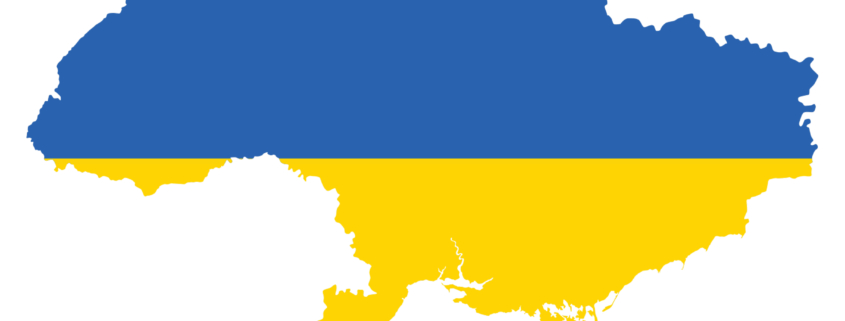Tips for Talking to Your Kids About the War in Ukraine
Though America is 9,153 miles from Ukraine, it’s impossible to turn a blind eye to the tremendous suffering and spectacle of war. Even children—who we instinctively shield from harsh realities of life—are overhearing snippets of adult conversation, seeing video snippets on TikTok, taking part in fundraisers at school, and talking amongst themselves.
Parenting is not about protecting our children from uncomfortable feelings and hardship. It’s about giving them the tools, resources, and encouragement to cope with unpleasantries with resilience. Addressing the topic may be uncomfortable, but it’s better to be proactive, open, and honest to make sure your children feel safe, empowered, and reassured with family values.
Here are some tips to get the conversation started and some ideas on what you can say.
Conversation Starters
- “Have you heard anything at school about Russia and Ukraine?” Asking questions can provide insight into what your child has seen or heard, so you know where to begin. Your child’s personality will factor in, as some kids are more mature, curious, or attune than others. If your child doesn’t seem interested, you don’t need to push the issue.
- “Do you want to talk about anything you’ve heard or seen about the conflict?” Talking is an important step in alleviating anxiety. Generally speaking, you should monitor media intake at this time and avoid leaving the TV running. There have been instances of PTSD among children who watched 9/11, the Oklahoma City bombing, or the Challenger explosion on TV. Find excuses to connect and spend time together as a family (and off devices) as much as possible. If your child is consuming a lot of media in social channels, explain the importance of vetting news sources for bias and encourage the use of news sources for kids like Newsela, Newsomatic, HuffPost Teen, or NPR.
- “Do you know where Russia and Ukraine are? Have you heard how people are helping?” Looking at a map or globe together can be educational. Show your child where Russia and Ukraine are in relation to America and point out countries that do not support the military action and steps they’re taking to stop the conflict. Focus on the helpers sending food and supplies or taking refugees in.
- “Do you have any questions for us?” Answer any questions your child has calmly and honestly, choosing the simplest answers you can. Though they may not verbalize it, children typically wonder: “Am I safe? Is our family safe? How will this affect my day-to-day life?” They may want to know if you’re worried, too – and it’s okay to say “yes” or that you don’t have all the answers about how this will end, but add that “we’ll manage it and get through this together.”
- “What do you think about it? How does this news make you feel?” Giving children a chance to share empowers them. Providing a sounding board is reassuring that you are there to hear your child’s worries. If a worry is caused by an inaccurate belief, you’ll have a chance to correct it. Take this time to reinforce family values, expressing concern for the Ukrainian people and members of the military, as well discussing your hope for peace.
- “What do you want to do? Who do you want to help?” Some children may respond with anger or aggression. Acknowledge those feelings, too, stating that others feel the same way, but gently remind your child anger needs to be contained in order to find logical solutions. As a family, you may explore one of the charities on the frontlines. If your children get an allowance or birthday money, be sure they contribute, so they can feel like part of the solution. After you’ve made a donation, remind your child it’s okay to go outside, play, and simply be a kid. These issues can be heavy and they shouldn’t feel guilty for enjoying their childhood.
Answers to Tough Questions
- “Why is there a war?” Start with straightforward facts for elementary-aged children by explaining: “Russia has invaded Ukraine; our country is trying to help Ukrainians defend themselves.” Or you might explain that some people feel Ukraine should be part of Russia, but it’s not okay to take it by force.
- “Why is Russia doing this?” It’s important to avoid demonizing an entire country or group of people. A better way to frame it to younger children is that “the leader of Russia has made a very bad decision.” Older children in 4th to 6th grades may be reading about Cold War history and the breakup of the Soviet Union, which can be a way of understanding the pretense for imperialism.
- “Is this World War III? Will the US get involved? Can that happen here?” You can let your child know that it’s normal to worry and validate that it is a scary situation. Explain that there are countries, organizations, and individuals helping the Ukrainians right now, and there are no signs America will go to war right now. Encourage a focus on what we know is happening now. Reassure your child that you will do all you can to keep the family safe.
Shine Your Light
Interested in building tolerance and cultural sensitivity for the next generation? Shine is a great place to learn about other cultures and make new friends—with ongoing workshops, classes, and parties that combine art, music, culinary delights, storytelling, and movement activities for children ages 0-12. We empower kids to shine their light to make the world a better place.


 https://theaamuseum.org/gallery/
https://theaamuseum.org/gallery/